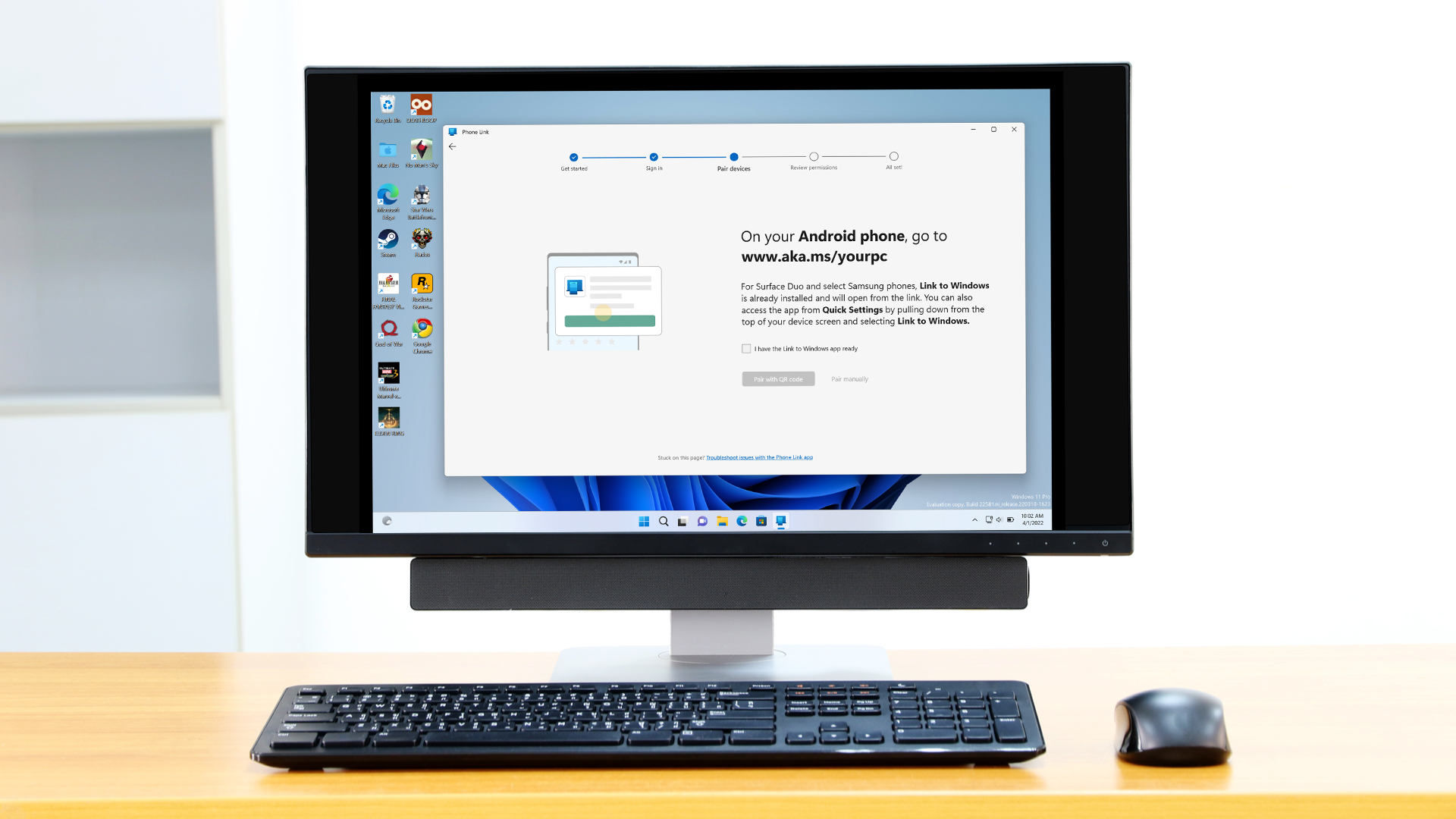Google and Microsoft aren’t syncing up: why Phone Link might no longer show you sensitive notifications after installing Android 15
Phone Link loses sensitive notifications when connected to a device running Android 15 for some - here’s why

- Android 15 redacts sensitive notifications from “untrusted” apps, which happens to include Link to Windows, and this will cause these notifications to not be shown via Phone Link for some
- Android users, such as Google Pixel and Sony Xperia users, might face issues if Link to Windows wasn’t pre-installed
- Despite this, Phone Link still works for calls, messages, and apps; sensitive alerts need manual checks
In a moment that reminds us that Google and Microsoft are indeed two different companies, it’s been reported that users of both Windows Phone Link on Windows 11 and mobile devices running Android 15 might find that Phone Link is a little less helpful than before. Some people trying to do this might find that certain sensitive notifications don’t appear anymore while using Phone Link on their PC while their Android device is connected.
Phone Link is a feature in Windows 11 that allows you to access your Android device via your PC and do things like view notifications, read and reply to messages, make and receive phone calls, view media such as photos, and use some Android apps. You can even use your Android phone as a webcam and sync files between your PC and mobile right in File Explorer.

What’s changing and why
Google released Android version 15 in October 2024 and in that, the company introduced a new privacy rule: it hides (or “redacts”) sensitive notifications, including 2FA codes (those one-time codes used for logging in securely that people receive as a message on their mobile) and alerts from banking apps. It’ll censor notifications from any app that Google deems as an “untrusted” notification monitoring app, according to Windows Central.
It appears that some users have been presented with a notification in Phone Link warning them that:
"With the latest Android updates, Phone Link no longer shows notifications that contain sensitive information for your protection."
On Android, you need a companion app to Phone Link named “Link to Windows” and it appears that Google has (accidentally or otherwise) designated this as untrustworthy. However, this will only affect people who have downloaded the Link to Windows app from the Google Play Store and not those who are using Link to Windows on devices that came with it pre-installed. Some phones affected by this quirk include Google Pixel and Sony Xperia models, while Samsung Galaxy AI devices will likely go unaffected.
Phone Link is still useful even if you upgrade to Android 15 on a phone that didn’t come with Phone Link by default and have installed Link to Windows manually from the Google Play Store. You can still check messages, manage apps, and make calls. It’s just that you’ll need to physically check your phone for some sensitive messages after installing Android 15, if you don’t already.
Get daily insight, inspiration and deals in your inbox
Sign up for breaking news, reviews, opinion, top tech deals, and more.
Phone Link is one of the most useful parts of Windows 11 and it allows you to work, for example, on your PC without having to check your phone. If you're used to checking all of your mobile notifications on your PC, I can imagine having to adjust back being slightly annoying.
I also wonder if Google will amend this in a future update after revising this policy with regards to Phone Link, although we don't have any indication of this yet. Users of both Windows 11 PCs and devices running Android 15 without Phone Link pre-installed will have to hope for the best (or let Google know that they're not happy about this change).
You might also like...
- Microsoft finally delivers AirDrop-style file sharing between iPhones and PCs – here's how it works
- Windows 11 could soon get a cool feature to seamlessly link your Android phone to the Start menu - and a nifty gamepad perk, too
- Windows 11 could get a ‘Hand Off’ feature that brings Apple-like convenience in integrating your phone and PC
Kristina is a UK-based Computing Writer, and is interested in all things computing, software, tech, mathematics and science. Previously, she has written articles about popular culture, economics, and miscellaneous other topics.
She has a personal interest in the history of mathematics, science, and technology; in particular, she closely follows AI and philosophically-motivated discussions.